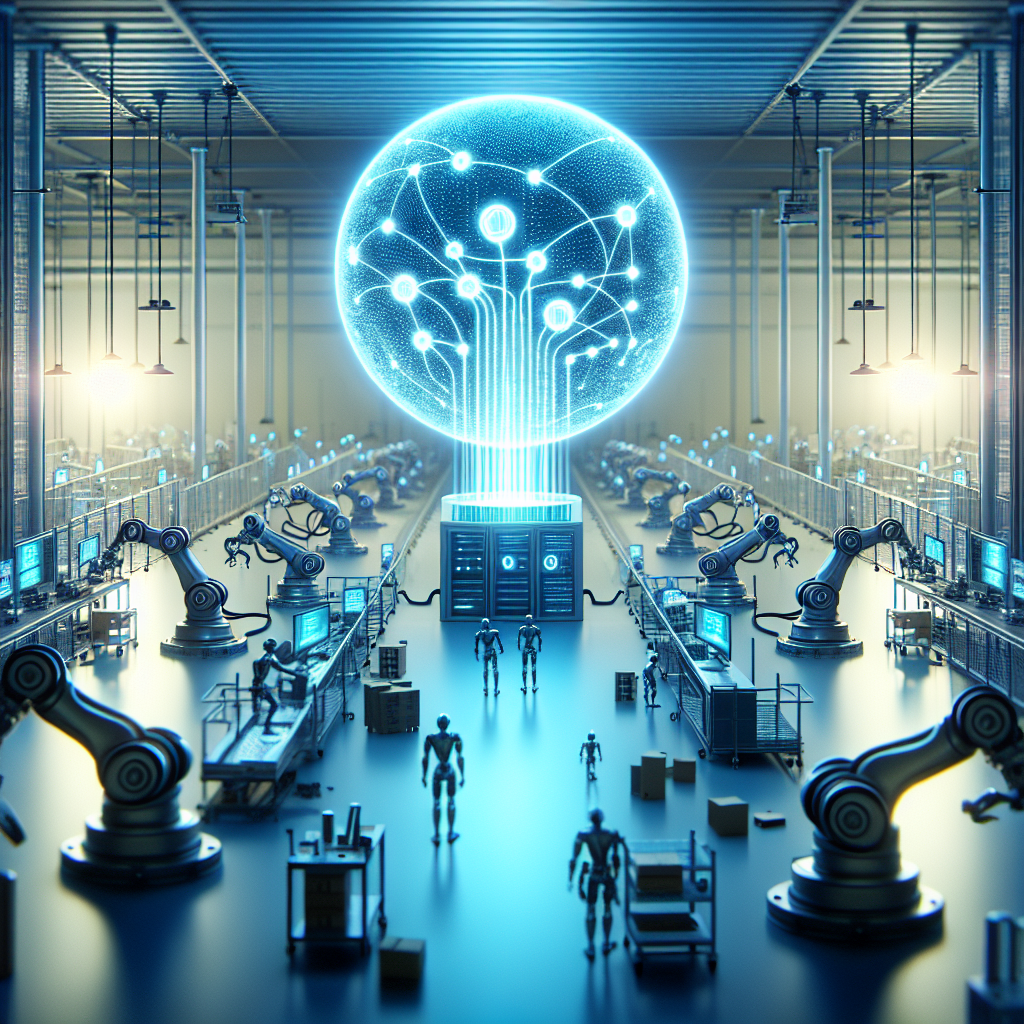Artificial Intelligence (AI) has become an integral part of many industries, including manufacturing. AI platforms are revolutionizing the way manufacturers operate, improving efficiency, productivity, and quality. In this article, we will explore the future of AI platforms in manufacturing, discussing the latest trends and advancements in this rapidly evolving field.
The Role of AI in Manufacturing
AI has the potential to transform the manufacturing industry in numerous ways. One of the key areas where AI is making a significant impact is in predictive maintenance. By analyzing data from sensors and other sources, AI platforms can predict when equipment is likely to fail, allowing manufacturers to schedule maintenance proactively and avoid costly downtime.
AI is also being used to optimize production processes, improve quality control, and enhance supply chain management. With AI platforms, manufacturers can analyze vast amounts of data to identify patterns and trends, helping them make better decisions and improve operational efficiency.
Another important application of AI in manufacturing is in robotics. AI-powered robots are increasingly being used in factories to perform a variety of tasks, from assembly to packaging. These robots can work alongside human workers, enhancing productivity and safety in the manufacturing environment.
The Future of AI Platforms in Manufacturing
As AI technology continues to advance, the future of AI platforms in manufacturing looks promising. Here are some key trends that are shaping the future of AI in manufacturing:
1. Integration with IoT: The Internet of Things (IoT) is playing a crucial role in the evolution of AI platforms in manufacturing. By connecting sensors, machines, and other devices to the internet, manufacturers can collect real-time data that can be analyzed by AI algorithms to optimize production processes and improve efficiency.
2. Autonomous manufacturing: AI-powered robots and other autonomous systems are becoming increasingly common in manufacturing. These systems can operate without human intervention, performing tasks with speed and precision that surpass human capabilities.
3. Personalized production: AI platforms are enabling manufacturers to produce customized products at scale. By analyzing customer data and preferences, manufacturers can tailor products to individual needs, creating a more personalized and engaging customer experience.
4. Enhanced safety and quality control: AI platforms are helping manufacturers improve safety in the workplace and enhance quality control processes. AI-powered systems can detect defects in products, identify potential hazards, and prevent accidents before they occur.
5. Sustainability: AI platforms are also being used to promote sustainability in manufacturing. By optimizing energy usage, reducing waste, and minimizing environmental impact, manufacturers can operate more efficiently and responsibly.
FAQs
Q: How do AI platforms in manufacturing improve efficiency?
A: AI platforms in manufacturing can improve efficiency by analyzing data to identify bottlenecks, optimize production processes, and reduce downtime through predictive maintenance.
Q: Are AI-powered robots replacing human workers in manufacturing?
A: AI-powered robots are not replacing human workers in manufacturing but are working alongside them to enhance productivity and safety.
Q: How can manufacturers implement AI platforms in their operations?
A: Manufacturers can implement AI platforms in their operations by investing in AI technology, training employees to use AI tools, and integrating AI systems with existing processes and systems.
Q: What are the benefits of using AI platforms in manufacturing?
A: The benefits of using AI platforms in manufacturing include improved efficiency, productivity, quality control, and safety, as well as the ability to customize products and promote sustainability.
In conclusion, the future of AI platforms in manufacturing is bright, with AI technology enabling manufacturers to improve efficiency, productivity, and quality in unprecedented ways. By embracing AI and integrating it into their operations, manufacturers can stay ahead of the curve and remain competitive in the rapidly evolving manufacturing landscape.

